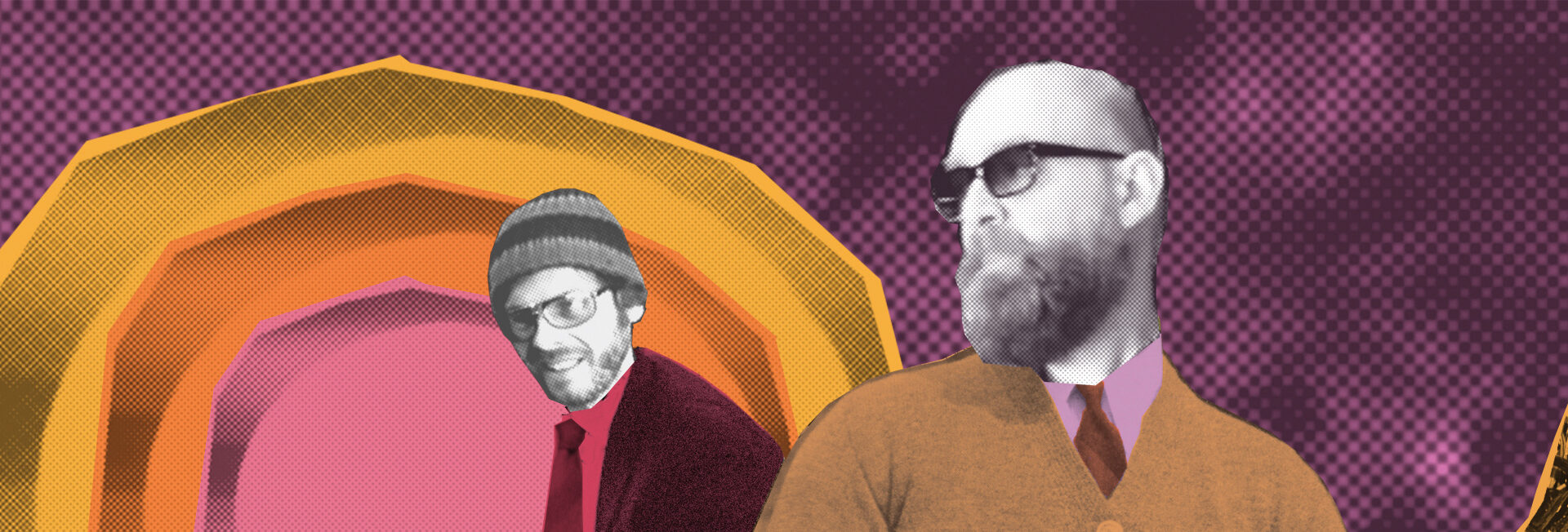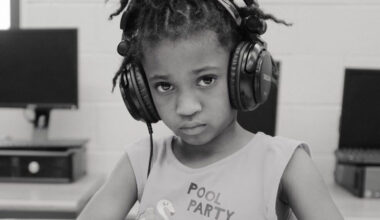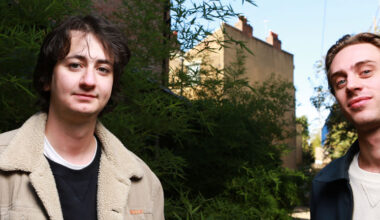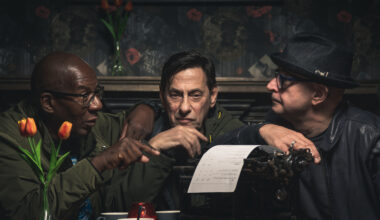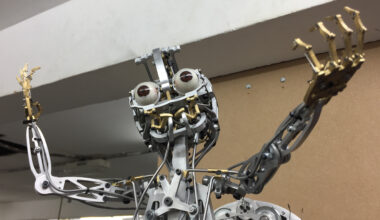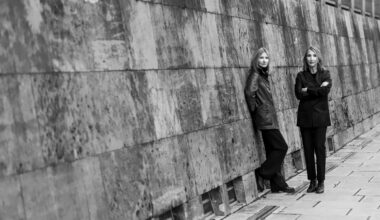Think Sheffield is a city trading on past glories? Think again. Powered by a legacy that stretches back to the 1970s, today the city thrums to its own sound of synthy goodness. Your guide to the tip of the iceburg is I Monster’s Dean Honer
From the early gurglings and choked splutterings of noise coming out of Cabaret Voltaire’s EMS Synthi AKS in the mid-70s, to the Octagon Centre packed full of synth fans at the annual SynthFest UK showcase, to sitting in City Hall last month watching Kraftwerk alongside the likes of Richard H Kirk and Philip Oakey, Sheffield has always had a thing about synthesisers and electronic music.
Cabaret Voltaire, The Future, The Human League, Clock DVA, Vice Versa, I’m So Hollow, Dig Vis Drill, Chakk, In The Nursery and Heaven 17 in the 1970s and 1980s, Warp Records, Forgemasters, Sweet Exorcist, LFO, Autechre, The Black Dog and bands like Moloko, The All Seeing I, Fat Truckers, Pink Grease, Add N To (X), I Monster, Hiem, White Trash and Kings Have Long Arms were all releasing records with a Sheffield electronic slant in the 90s and noughties.
In 2005, Arctic Monkeys spoiled the robot party somewhat and careered straight to the top of the charts with the brilliant ‘I Bet You Look Good On The Dancefloor’ and young Sheffield synthesists headed to Cash Converters to trade in their MS-20s and SH-101s for Stratocasters. Bedroom producers put their machines in a cupboard and had to learn how to mic up a guitar amp as a swathe of AM-inspired Sheffield guitar bands took centrestage.
But with the rapid growth of computer music technology, cheap DAWs, free DAWs, myriad VSTs, iPhone/iPad apps, the huge boom in 500 series modular synthesisers and new, affordable analogue synths, the innovative use of electronics still pervades the city’s music scene. Many of the Sheffield pioneers such as Richard H Kirk, The Human League, Adi Newton (Clock DVA), Stephen Mallinder (Wrangler) and Stephen Singleton (Vice Versa) are still making new music and performing live, as well as seeing their classic tracks reissued. Richard “Parrot” Barratt, who had success with Sweet Exorcist and All Seeing I, is releasing crooked house music on James Murphy’s DFA label under the name Crooked Man and even former Arctic Monkey Andy Nicholson is sat behind a computer and a beat box these days, producing music for Sheffield grime and hip hop artists like Sticky Blood, Clubs & Spades and Matic Mouth.
There’s also Alex McLean, an artist who makes music under the name Yaxu. He is one of the co-founders of the Algorave collective and runs the Algomech Festival, which will take place in Sheffield in November this year. Algorave is a movement based on the idea that you can distil computer music down to its very essence by writing code during a performance to make improvised live music.
“The coding is projected on to a screen for the audience to see what the coders are doing and how it affects the music,” explains Alex, who uses his hard earned skills to make algorhymic dance music. “In terms of Sheffield music, I’m very much influenced by the early Warp output, artists such as Autechre, Plaid, The Black Dog and Richard H Kirk.”
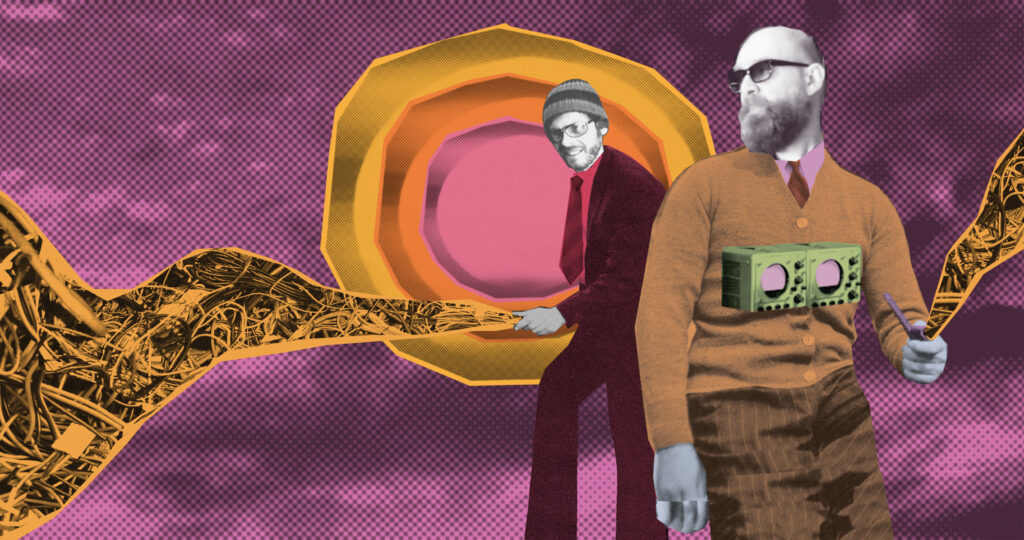
Live coding is a new area of electronic music that seems to be taking off in the city. Alex has developed his own computer program, Tidal Cycles (which is free to download), to make his Algorave compositions, coding instructions to change rhythms, generate sequences, change sounds, filters and effects as the music is playing. He uses sounds and samples stored in the computer rather than running any external machines, but some are starting to hook up their computers to modular synths and other hardware.
Fellow Sheffield outfit Blood Sport have embraced this new approach to live music and have developed from a more traditional band set-up into an experimental live “aggro-beat” machine. Their work sees them collaborating with the Algorave collective and enhancing their sound with drum machines and synths.
“In Sheffield there’s certainly a lot of interest in analogue and modular synthesis, helped in part by the heritage and festivals like Sensoria,” says Blood Sport’s Alex Keegan. “Two thirds of our band actually came to Sheffield originally because of the mysticism and legacy of Warp Records, so we’ve always had one ear to Sheffield’s unique role in British experimental electronics. We had a lot of people from the previous generation saying we were tapping into that history, so there must be a subconscious, cultural effect that being in Sheffield has had on our sound as well.”
With the words Warp ringing in your ears wherever you turn, you’d be forgiven for thinking the town ain’t big enough for other labels. CPU Records, who are celebrating their 50th release of high quality techno and electro, are very much their own label, but they carry the heritage of those heady early days of Warp’s Division Street operation.
“Warp are a huge influence,” confirms CPU’s Chris Smith, who also runs CPU’s mothership label Computer Club. “CPU has been called Warp’s spiritual successor in Sheffield, albeit more electro and techno focused.”
Chris’s Computer Club recording studio is primarily used for his own enjoyment and also to master CPU’s output. He recently rebuilt some old bleep techno tracks by early 90s Sheffield outfit Detromental. Originally released only on white label, the tracks ‘Move’ and ‘Rewind’ were legendary in the city’s techno scene.
“They sounded like they should have been on Warp”, says Chris of the long lost tracks that stood shoulder to shoulder with the likes of Forgemasters, LFO and Nightmares On Wax. “I’d been after the master tapes from Detromental’s Dean Marriott [aka D Ramirez] and Lloyd Douglass for over a year until it became clear they were lost. Having my heart set on releasing those tracks, I had their permission to rebuild them using many of the synths used to make the originals.”
Another new Sheffield electronic artist is Ben Hunter, better known as Saif Mode. Using a small Doepfer and modular set up, Ben makes an eclectic mix of synth and live percussion-based music. Plone-like in places, but also with sounds from the 80s that are reminiscent of US synthesists S U R V I V E. Ben is another artist influenced by Warp, but also cites contemporary Sheffield artists such as Sammartino, Heavy Lifting and Acid Mass as inspirations.
Increasingly Sheffield bands are incorporating modulars and synthesisers into their recordings, as they seek to expand their sonic palette beyond some strings and a plank. 65daysofstatic, Logs and The Moonlandingz are all guilty of adding unholy amounts of hot analogue sauce into these new sonic stews.
With the arrival of SynthFest as an annual Sheffield event attracting synth pilgrims from across the globe and the ever growing success of the Sensoria festival of music, film and digital, it is safe to say that the sound of Sheffield remains resolutely electronic.
Dean Honer has produced The Human League and Add N To (X) and is a member of All Seeing I, I Monster, Eccentronic Research Council and The Moonlandingz
